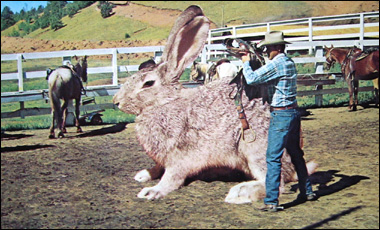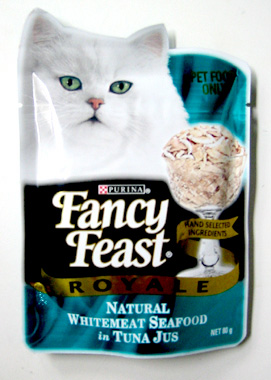After my post Clipping an Angel’s Wings, I received a comment from still amazed, which follows.
I welcome such comments about these big topics, and rather than let these thoughts disappear into the ephemeral distance of Blogger Comments, I hope still amazed will not mind that I have brought it back into a main post.
still amazed said…
Sorry to be so late in the day on this one, but would it really make no difference at all if there were a creator? Wouldn’t an objective scientific mind be the least be curious about how it all got started and from whence it all came — if it came from whence at all? Isn’t the Big Bang Theory an attempt to explain how and where it all started? Why would anyone have come up with such a theory except out of scientific curiousity? Has anyone ever calculated the probability that all that science describes in the universe (or is it a multiverse that we live in?) could have resulted from random interaction matter and energy?
Here’s a probability argument, only in relation to the probability that a single living cell could result at random. (The argument is not mine mind you; I am obviously not smart enough to advance this one): The probability of the chance formation of a hypothetical functional ‘simple’ cell, given all the ingredients, is acknowledged to be worse than 1 in 10 raised to the 57800th power. This is a chance of 1 in a number with 57,800 zeros. It would take 11 full pages of magazine type to print this number. To try to put this in perspective, there are about 10 raised to the 80th power (a number with 80 zeros) electrons in the universe. Even if every electron in our universe were another universe the same size as ours that would ‘only’ amount to 10 raised to 160th power electrons. (Read that last sentence carefully.) That makes 10 raised to the 57800th power a very big number.
still amazed: Thank you for your considered response. There’s a good question there, and some bad science.
Would it make a difference if there was a creator? That’s a reasonable question. We should ask that question. As a question.
But there are many problems associated with just supposing there is a creator and trying to make your world view fit in with that. For one thing, there are hundreds of different creation stories from all over the world and from all periods of history. Even Scientology has a creation story. So which creator is the real creator? From where do we derive the tools to make that decision? (It doesn’t count to say your creator told you so; everyone can say that).
Science, if practiced properly, doesn’t negate a creator; scientific reasoning just says there’s no evidence to suggest that it is necessary to make that assumption. Mystery is just not enough. There are a lot of mysterious things that we don’t feel the need to attribute to supernatural beings. And many things that were once considered mysterious, we now understand better because we’ve thought rationally and carefully about them. (That reason alone should make you wary of attributing mystery to God.*).
Another problem with just supposing there is a creator has to do with where you stick that creator on a timeline. Once upon a time people believed that the world was created pretty much ‘as is’ a few thousand years ago. We can now easily demonstrate that that just isn’t so. So the creator has moved back through the mists of time, to keep in step with scientific observation. The latest incarnation of this is the rather erroneously-named Intelligent Design, which accepts that, yes, there is such a thing as evolution (an admission that would have once been heretical) but claims that it only works to a point. The perceived ‘slack’ is taken up by the creator. All this re-arranging of the goal-posts just completely smacks of human-ness.
Now, your bad science: the statistical example you use is flawed on many levels, not the least of which is a smoke-and-mirrors trick with the big numbers. Yes, it sounds impressive, but you’re using a very faulty piece of post hoc, ergo propter hoc reasoning. It is often offered up to impress people.
Where does your logic fail? With the assumption that because this is the way things are, that this is therefore the only outcome. Calculating the odds of one exact outcome of a series of events is very explicitly not the same as calculating the possible outcomes of a series of events. This is an example of how people get easily confused by probability, and why slot-machine manufacturers and lottery companies make so much money.
To use numbers to say “Wow, look at what a whole lot of random events produced! Us!” is wrong in at least two ways.
In the first case, lots of evolutionary experiments, over a time period unimaginable to our human way of experiencing time, have produced literally billions of outcomes, and those are only the ones we know of. Evolution has enabled everything from slime-moulds, through trilobytes, allosaurs, water beetles, termites, coral reefs and wildebeest, to humpback whales. Your single cell example is meaningless – there have been, through the millennia, countless numbers of different kinds of cells, and cell-like adaptations. Not just one. And that doesn’t even include the probably billions of billions of failures. Evolution is an imperfect tinkerer. Your example is like pointing at a person on a bicycle and saying “Wow, what are the odds of seeing that particular guy, wearing that exact red scarf, on that exact model of bicycle riding down this exact street in London on a Tuesday in December?” Of course, they are ENORMOUS odds. You would not put a wager on such an event happening. Nevertheless, when you see that guy on his bicycle zip past, you don’t scream “It’s a miracle!” Why? Because it isn’t a miracle unless you consider it out of context and after the fact.
Another way in which your example is imperfect is subtle and needs some knowledge of mathematics and chemistry to grasp well. It is also a fairly cutting edge idea but evidence is accumulating rapidly which speaks in its favour.
It is this: evolution (both physical and biological) has a high degree of randomness inherent in it, but it is not entirely random. Very clever people like Ian Stewart, Stephen Wolfram and Paul Davies have suggested that evolution (and indeed, many other kinds of natural processes) is expedient and exploits certain kinds of physical properties inherent in the mathematical structure of the universe. In other words, evolution conserves effort by making use of atomic properties and simple rules, and for reasons we are only just now starting to understand, complexity arises from these simple states.
To relate it to your example, a cell forms because, over a long period of time, certain kinds of inherent physical tendencies (like surface tension, molecular lattice structure and forces inside atoms) are exploited by random processes. Complexity builds rapidly from these simple conditions in a perplexing way. But it’s only perplexing because the calculation capability of our brains is not able to comprehend it, in much the same way as you or I can’t really imagine ten million years of time, or three hundred light-years of distance. Crucially, though, we are slowly beginning to understand more of the mechanism by which life evolves by careful observation and study. Where there was once ‘God’, there is now more understanding. And this pattern gets repeated through the ages. No wonder gets removed by this understanding, nor amazement. Just superstition.
Now, the really Big Question. Why should the universe be striving toward life? That’s a mystery. A big mystery. Science doesn’t know. Science doesn’t pretend to know either. Science says “Let’s find out! It’s a great adventure!” And we move forward and find out more.
You can, if you wish, stick God in right back there and say – God made all those laws and that’s why it’s so. But it’s a barren thought. Why not say, instead, that God made everything yesterday including all your memories up until that time? It’s just as valid a speculation. There is no way that we can usefully process either of those things. If it makes you comfortable to believe that the mathematics of the universe was written in stardust-peppered ink on a coal black nothingness in the very beginning of time, then that’s OK. It’s just that there is no reason to suppose that it’s so.
still amazed: May I suggest you read some of the writing of Paul Davies, a scientist who has won the Templeton Prize for Progress in Religious Thought. Professor Davies is a thoughtful, erudite and deeply philosophical scientist. A proper scientist. He is a scientist who is asking the questions you want scientists to ask. And coming up with some answers. That might be the hard part for some people.
*Some things that were once considered mysterious and in the realm of gods: the Sun’s movement across the sky; epilepsy; the regular flooding of the Nile Delta; dinosaurs; sneezing.








